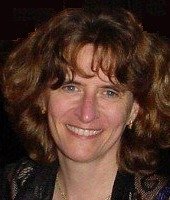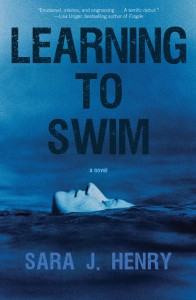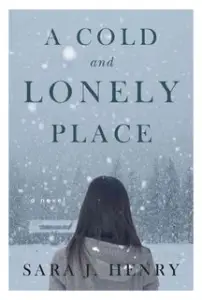 “If I’d blinked, I would have missed it. But I didn’t, and I saw something fall from the rear deck of the opposite ferry: a small, wide-eyed human face, in one tiny frozen moment, as it plummeted toward the water.”
“If I’d blinked, I would have missed it. But I didn’t, and I saw something fall from the rear deck of the opposite ferry: a small, wide-eyed human face, in one tiny frozen moment, as it plummeted toward the water.”
From the publishers: When she witnesses a small child tumbling from a ferry into Lake Champlain, Troy Chance dives in without thinking. Harrowing moments later, she bobs to the surface, pulling a terrified little boy with her. As the ferry disappears into the distance, she begins a bone-chilling swim nearly a mile to shore towing a tiny passenger.
Surprisingly, he speaks only French. He’ll acknowledge that his name is Paul; otherwise, he’s resolutely mute.
Troy assumes that Paul’s frantic parents will be in touch with the police or the press. But what follows is a shocking and deafening silence. And Troy, a freelance writer, finds herself as fiercely determined to protect Paul as she is to find out what happened to him. She’ll need skill and courage to survive and protect her charge and herself.
Sara J. Henry’s powerful and compelling Learning to Swim will move and disturb readers right up to its shattering conclusion.
Winner of the 2012 Agatha Award for best first novel and the 2012 Mary Higgins Clark Award; nominated for the Barry, Macavity, and Anthony awards. The sequel, A COLD AND LONELY PLACE, will be out Feb. 5, 2013.
PLACE, will be out Feb. 5, 2013.
I had the privilege of sending Ms. Henry some questions regarding her writing, and the publishing industry in general. I was quite happy with the detailed and thoughtful responses she wrote. Here it is:
1. When you finished your novel and decided to try to be published, did you consider self publication, and if so, why, and if not, why?
I sold my novel in 2009, and at that long-ago date, self-publication wasn’t a particularly viable or attractive option for a debut novelist. And since I’d taken time off to finish the book, I needed an advance from a publisher. Self-publishing still has some disadvantages – self-published books aren’t eligible for most conventional awards.
2. I saw in your acknowledgements you were part of a reading group. How influential and/or helpful is it to have various individuals comment and critique your work in progress, and did the criticism ever make you want to stop writing? And as I’ve never been able to ask an author this question until now, do reviews on the internet, especially from readers on Amazon, affect you positively, or negatively?
The major advantage of my Nashville writing group was that it got me to finsh the first draft of the novel – if I didn’t have someone waiting for the next chapter, I likely never would pushed through. I was also extraordinarily lucky that members of that group included Meg Waite Clayton and her husband Mac, whose comments on the manuscript were dead-on. Later I had test readers, or beta readers. These are very helpful, especially on a first novel, when you’re not sure if you’re getting a scene or character across. Mine were great.
Reviews on the internet can be tough, especially early on, when they can greatly influence your sales – and your success and career or lack thereof. Print reviews can be bad, but some anonymous internet ones are devastating in their viciousness. Eventually, you stop reading these reviews. But yes, Amazon and Goodreads reviews are important.
3. As a first time novelist, were you given support from your publisher in regards to publicity? Did they send you on a signing tour? Send out many advance reading copies? Review copies? If they didn’t support you with a publicity tour, did you decide to travel to various stores yourself? Did you attend any of the crime fiction conferences such as Malice Domestic, Bouchercon, West Coast Crime to support your own work? Before your nominations and wins.
Like many debut novelists today, I set up and paid for my own bookstore tour, and radio and TV appearances – I even bought advance copies off eBay to send to independent bookstore owners once I ran out. The publisher of course sent out review copies, and later provided me more advance copies and then hard copies to use in promotion.
I’ve attended Bouchercon since the day I went to a 2006 Laurie R. King signing in Nashville and she said, “You should to go Bouchercon.” I’d never head of it, but have been back ever since, except the year it was in Alaska. It has been wonderful – I can’t describe the amount of support I have gotten from authors I’ve met there. Until recently, it was the only such conference I went to, but this year I decided to go to Malice Domestic, which was a stellar experience, and I’ll be back there every year. I’ve been invited to CrimeBake this year, and I’d like to hit West Coast Crime in 2013 as well.
4. When your first positive review was received, were you excited, relieved, or in disbelief? Or were you confident enough in your work to expect good reaction?
There’s always a sense of disbelief – but overall, relief. I don’t think confidence comes into it that much – you can have a great book that a reviewer simply takes a dislike to or doesn’t “get” because it’s a bit different.
5. You mentioned you liked trade paperbacks because they are easier to read. Do you prefer an actual real book to hold and read, or a e-book machine? Or both? And if you prefer one over the other–which one and why?
I think trade paperbacks are easier to read than the smaller mass market size, especially now that my eyeballs are older. I understand why people love e-readers, and e-books are great for book sales: fast, easy, and usually people don’t return them. But the fact is we read differently online or on electronic devices than we read on paper, and process what we read differently. I prefer actual books, because I tend to skim and read e-books fast, as I often do other material online. But I embrace the technology that makes books so easily available to many.
 6.The prevailing mantra is ‘write what you know.’ Are you from the areas of which you wrote in the book? Lake Placid, New York. Burlington, VT, Ottawa, Ontario, Canada? I do see in your bio that you worked on bikes at one time. And you wrote pieces for various publications. Do you find it easier to imbue your character with some of your traits?
6.The prevailing mantra is ‘write what you know.’ Are you from the areas of which you wrote in the book? Lake Placid, New York. Burlington, VT, Ottawa, Ontario, Canada? I do see in your bio that you worked on bikes at one time. And you wrote pieces for various publications. Do you find it easier to imbue your character with some of your traits?
The short answer is yes. I lived in Lake Placid and Saranac Lake for five years, and worked at the same newspaper my main character did. I also lived in the Ottawa area several years (and attended graduate school there), and visited Burlington frequently. Of course it’s easier to write about places you know, and to give a character some of your traits!
7. The amazing depth of emotion shines through from the first line of the book. How do you draw on your own empathy and compassion to endow Troy Chance with these intense feelings?
This is what I call bleeding on the page, and much of it didn’t come through on the first pass or even the tenth pass. I simply went over and over the manuscript, forcing myself to feel just what Troy felt and trying to capture it on the page.
8. The storyline has the feel of a romantic suspense, but marginally, in my opinion. The relationship with Paul is the dominant one in the book, which keeps the story from becoming a full blown romance title. Was this a conscious decision, to keep the romance low-key and focused on Troy’s relationship with Paul?
Not really a conscious decision, but it was clear to me from the start that the main relationship in this book was with the child Paul. I’d say my base models were the Mary Stewart suspense novels – anyone who hasn’t read Nine Coaches Waiting should rush out and find a copy – and while those novels did have some romance, it was never the main storyline. I did consciously keep things G-rated, or at least PG. I wanted my books to be accessible to a wide range of readers, from young to old, including those who don’t care for graphic sex or violence or strong language.
9. One can’t help feeling that you are setting up a scenario in which Troy finds herself attracted to both Philipe and the police officer, Jameson. In the sequel. A Cold and Lonely Place, to be published in February 2013, will the same characters return, or does Troy find herself in a completely new story, sans the past?
The situation with Philippe and Jameson sort of developed on its own! Jameson popped onto the page fully formed, and he decided everything he was going to do, not me. All the main characters return in the sequel, except that Troy’s brother Simon is off screen rather than on this time around, but he’ll be back.
10. With one title now a major success, did writing the second installment feel pressurized? I’ve heard from various authors that although they were able to take years to hone their first novel, the second is expected very quickly. Has this been a problem for you, or had you thought of your work as a series from the first?
This has always been a series – I had the first 5,000 words of the second book written before I sold the first. As I was putting the finishing touches on the first sequel, A Cold and Lonely Place, I was already hearing from readers what they loved about the first one, and as an author you can’t help but worry a bit if they’re going to like the next. And I think most authors might admit that about mid-point in Book 2, they begin to wonder if perhaps they were really only a one-book author! But after you get through a draft of two, you get over it.

Learning to Swim is the kind of book of crave; it’s suspense fiction from a completely different angle. I was hooked by the second paragraph. I wouldn’t be surprised to learn that negotiations for the film are already under way. This type of fresh story is exactly what readers and viewers crave.
I loved Learning To Swim from the first page and I’m very glad to see Henry has another book on the way. Great interview questions, Diane!